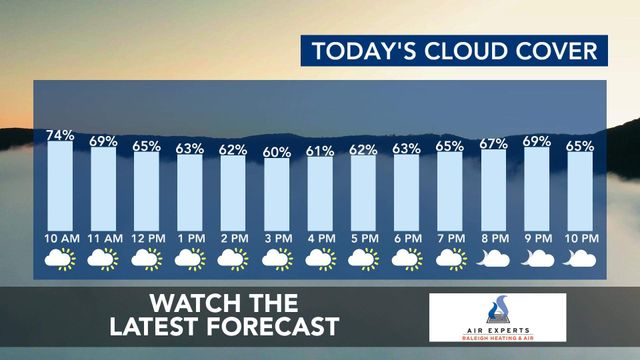North Carolina residents need more degrees, certificates to meet job demand, new report says. But it's getting better

North Carolina education and business leaders say the state needs more funding, along with policy changes, to help lower-income residents earn credentials toward jobs.
The state is short on people who have a credential — whether a certificate or an associate’s degree or higher — compared to the number of jobs that are open, according to myFutureNC’s newest State of Educational Attainment report released Thursday. That gap will only grow wider, the report states.
“The number of students not achieving a degree or industry-valued credential within six years is less than a third of all North Carolina high schoolers, yet we know that two-thirds of our jobs require higher levels of education,” Cecelia Holden, the president and chief executive officer of myFutureNC, said in a news release Thursday. “North Carolina is losing too many of our students along this leaky pipeline, and we must do better.”
Holden’s group is a nonprofit focused on workforce development through educational attainment.
On Thursday, she met with leaders in Sanford about the essential tasks of taking advantage of economic growth by training people for new jobs, while also sustaining economic growth by assuring companies of the availability of trained workers in North Carolina.
“The exceptional career opportunities in the North Central region can only be realized if our young adults are sufficiently prepared to enter and to develop in these careers,” Lisa M. Chapman, president of Central Carolina Community College, said in the news release.
myFutureNC and others want to engage young people without credentials and help people who have been unable to finish their certificate or degree program.
“Everybody has a labor market shortage,” Holden told WRAL News. What North Carolina needs is to align the certificates or degrees that North Carolina residents are earning with the labor market shortage areas, especially healthcare.
The group’s focus is on credential for “family-sustaining” wages, which nearly half of North Carolina residents aren’t earning at their jobs, according to the report.
Last week, Superintendent Catherine Truitt and North Carolina Chamber of Commerce President and Chief Executive Officer Gary Salamido presented a toolkit for businesses to use to become more involved in K-12 schools. Truitt and Salamido cited a high need among companies and a high interest in students in working toward a job while they’re still in high school.
Federal data show wages tend to rise, the higher the degree earned, when averaging all industries, though the large majority of people never earn a four-year degree.
On Thursday, myFutureNC convened eight events across the state with education, business, government and community representatives to discuss how to make sure more North Carolina residents have some kind of credential. The group’s goal is for two million residents to have a credential by 2030.
The state is about 24,000 people short of being on pace for that goal right now and the report projects the state, if trends continue, to be 71,000 people short of the goal by 2030.
The group made three policy recommendations Thursday. First, for state lawmakers to provide emergency assistance for students to complete their college degrees. This could prevent students from dropping out when something disruptive happens in their life, Holden said.
Second, for lawmakers to provide financial aid for lower-income students pursuing a credential. Currently, federal Pell Grants can help lower-income students pursue degrees, but Pell Grants can’t be used toward certificates that don’t go toward a degree.
Third, the group is asking for funding to help leaders collaborate to improve educational attainment across North Carolina.
Still, North Carolina is closer to being on pace for the 2030 goal than it was when myFutureNC first started its work, Holden said. In 2019, it was 44,000 people off of the pace.
According to the new report Thursday, community colleges saw a 2% uptick during the 2022-23 school year in people older than 25 enrolled in a program.
“So we’re certainly tracking in the right direction,” Holden said.
The group is working with more local organizations, including community colleges, to have more focused and tailored plans for their areas.
“There is excellent work underway at every single local level, at the state level, and we're very well poised for continued economic growth,” Holden said. “And as we know, economic development and education are one and the same.”
myFutureNC also made recommendations within its new State of Educational Attainment report for policies that would help prepare North Carolina residents well before they’re old enough to sign up for college classes.
The group recommended expanded pre-kindergarten, a continued focus on new, research-based reading legislation, and career development plans for middle and high schoolers.
Part of the solution for increasing educational attainment, according to the report, is getting more students to graduate from high school in the first place. About one in nine North Carolina residents aged 16 years old to 24 years old aren’t working and aren’t in school.











